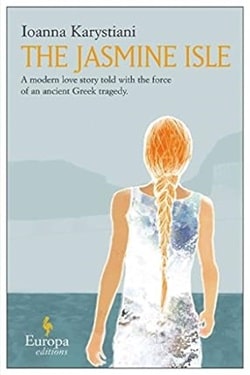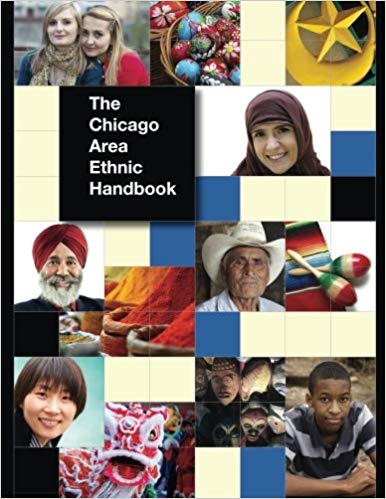My Greek Books
Welcome back to My Greek Books! This month, read about two Greek novels in translation and a brand-new myth reimagining. Let’s go!
I’m an Amazon affiliate. As an Amazon affiliate, I earn money from qualifying purchases. By clicking through the links, when you make a purchase, I’ll receive a small commission at no additional cost to you. It helps to support my writerly endeavors. Thank you!
The Jasmine Isle by Ioanna Karystiani, translated by Michael Eleftheriou
Europa Editions (April 1, 2006)
About the author
Born in Crete with roots from Asia Minor, Award-winning Novelist and Screenwriter Ioanna Karystiani and her family split time between Athens and the island of Andros. She studied law and worked as a cartoonist for a handful of media outlets. Karystiani has written a collection of short stories plus several novels, including Swell (2007), for which she garnered the Greek National Book Award. Her first novel, Little England (translated into English as The Jasmine Isle) won the Greek State prize for Literature and the Athenian Academy prize. I’ve been able to source two other of her novels translated into English – Return to Delphi (Europa Editions, 2013) and Swell (Europa Editions, 2010).
As a screenwriter, she’s best known for THE LAST NOTE (2017), BRIDES (2004), and LITTLE ENGLAND (2013), all of which were directed by her husband, Greece’s master filmmaker Pantelis Voulgaris.
I was unable to find information about the translator.

About the book
In the early 20th century on Andros, there are virtually no men. All are at sea. They send money, but basically, the women have been left to fend for themselves. Mina Saltaferou, wife of a sea captain, is the domineering mother of two daughters, Orsa and Mosca. As the girls bud into womanhood, each falls in love—Orsa with Spiro, and Mosca with an Englishman. Spiro’s uncle visits Mina to set a marriage for him and Orsa. Mina refuses, as he is not a sea captain. With their father, Savvas, away, Mina arranges a marriage for Orsa, with a young sea captain she’s never met. Later, after returning from a trip with her husband, Orsa learns that her sister is now engaged. Her mother has arranged a marriage for Mosca with Spiro, who is now a sea captain.
Orsa has never gotten over her first love. The sisters and their spouses move into a two-story home—Orsa on the main floor and Mosca above. There, Orsa is tormented by the sounds of her sister and Spiro making love. The walls and floors are thin, and she can hear everything. Orsa does her best to forge a life with her husband and children, but the reminders are everywhere. But when Spiro is away, life finds its rhythm, with the sisters enduring their lives through joy and sorrow. And with both husbands gone for long spans of time, as virtual single parents.
When Spiro goes down with his ship, Mosca finally learns and feels what her sister has lived all these years—that they both loved the same man. And life as they know it is forever changed.
My Greek Books review
This book had sat on my to-be-read shelf for a while, as I’d been focusing on newer ones. But in anticipation of attending the New York Greek Film Expo last month and seeing the film adaptation again (I’d seen it when it came out in 2013), I had to read it. The Jasmine Isle is a poignant tale of love and loss, joy and pain. On the struggle with our fate, on love that never dies. It’s hard to believe this was the author’s first novel. Ioanna Karystiani weaved a layered and haunting story that hooked me from the beginning. Through her writing, the images were vivid, ones I couldn’t get out of my mind. As she is the screenwriter, you’ll find LITTLE ENGLAND true to the novel. It’s a story you won’t soon forget.
Are you on my email list? Get my monthly newsletter and stay up to date on all my latest news, learn about recent blog posts, and more. And get in on great book giveaways! Click HERE to join. It’s FREE.
The Great Chimera by M. Karagatsis translated by Patricia Felisa Barbeito
Aiora Press (May 10, 2019 – First publication 1936)
About the author
M. Karagatsis is the pen name of the modern Greek novelist, journalist, critic, and playwright Dimitrios Rodopoulos, who lived from 1908-1960. According to Wikipedia, y\the letter “M.” in his pen name comes from Mitya, which is the Russian diminutive of Dimitris. Karagatsis comes from the Greek for elm tree, karagatsi, under the shadow of which he used to write as a young man. Born in Athens, he grew up in Larissa and Thessaloniki. He later died in Athens.
Considered one of the most important Greek prose writers of the early 20th century, Karagatsis is a central figure in the ‘Generation of the 30s’, a group of writers, poets, artists, and scholars that brought fresh modernist currents to Greek art and literature. He published more than 10 novels, plus many novellas and plays. According to some sources, the author died in the midst of writing another novel. The Great Chimera is part of a trilogy of novels, including Colonel Liapkin (I’ve only found a French translation) and Junkermann ( also available in English translation by Barbeito).
About the translator
Patricia Felisa Barbeito is a professor of American Literatures at Rhode Island School of Design and an award-winning translator. She’s translated many works from Greek to English, including books by Amanda Michalopoulou, M. Karagatsis, Meis Koumandereas, Christos Chomenidis, Tatiana Averoff, and Elias Maglinis. Her translations of shorter works, including short stories and poetry, have been published in anthologies of Greek writing published by Penguin Books, and also in Words Without Borders, PEN America, Asymptote Blog, Catapult, InTranslation, and Exchange.
She also frequently publishes in textbooks about Greek literature and history. In Retelling the Past in Contemporary Greek Literature, Film and Popular Culture, Barbeito and Vangelis Calotychos wrote about the fiction made by Elias Venezis and its connection to the Asia Minor Catastrophe and the population exchange.
Among her awards are a 2022 fellowship from the National Endowment for the Arts and the 2013 Constantinides Memorial Translation Prize. In 2014, she was shortlisted for the Greek National Translation Award.

About the book
Marina’s life in early 20th century France has been hard. From her painful family past to the insularity of her French upbringing, she’s eager to leave and start anew. Life changes forever for this beauty when she meets Yiannis, a seductive sea captain. For the first time, she learns what true love feels like. They marry, and settle in Syros, under the watchful eye of her mother-in-law. Marina also falls in love with Greece. Though she is fluent in Ancient Greek, she quickly learns modern Greek and delves into contemporary Greek culture. She wants to learn it all, from the great literature, art, traditions, and more. Though not of Greek extraction, she wants to be the best Greek she can be.
She and Yiannis welcome a daughter, and along with his brother Minas and their mother, forge a new life. Minas is younger and more cultured. While Yiannis does enjoy the finer things, it is Minas who adores art and devours great literature, like his sister-in-law, which leads them to enjoy many fascinating and thought-provoking discussions. It’s sunshine and roses in their privileged world, until disaster upends Yiannis’ shipping business—and their comfortable life.
Giving up the finer things in life weighs on Marina. Her husband, who hadn’t sailed with his ships in years, is forced to return and manage the voyages, keeping him away from home for an extended period. With no more lavish parties, intellectual discussions, only a lonely life without Yiannis, stuck in the house with her daughter and her overbearing mother-in-law, she feels like she’s in an institution. Her world upended, her life becomes chaos, and it all comes tumbling down around her.
Notes
The Great Chimera has previously been adapted into a stage play and in January, a miniseries will premiere on ERTFlix. I’d heard about the book, and upon learning about the miniseries, I ordered a copy but hadn’t gotten to it yet. Last month, when I met Actor Andreas Konstantinou at the New York Greek Film Expo, we chatted briefly about the novel that was adapted into the screenplay for LITTLE ENGLAND, in which he starred. He then asked if I had read The Great Chimera. He stars as Yiannis in this adaptation. Konstantinou spoke about the greatness of the author and that I should read it “now” and “don’t wait”. I took his advice and I’m so glad I did. He also said, “I can’t wait for you to see it”, and called it “cinematic and gripping”.
My Greek Books review
Congratulations to the translator, Patricia Felisa Barbeito, for taking on this work and bringing Karagatsis’ classic novel to English-speaking audiences. Her skillful translation shows her knowledge of Greece and Greek culture. Chimera has many definitions, and one definition, “any mythical or fictional creature with parts taken from various animals”, can be applied figuratively to her work. While I don’t believe that she literally took parts of other works for the actual translation, I do believe that she was informed by Greek tragedy and myth, as well as her cultural knowledge. And the sum of all those parts yielded her brilliant translation.
The word chimera brings heavy weight from mythology. And Homer also wrote of a chimera. There’s also another definition: “a thing that is hoped or wished for but in fact is illusory or impossible to achieve”. And such is the heroine’s plight. Karagatsis artfully crafted a multi-layered story, of which multiple meanings may be derived. From the legendary difficulties of the mother-in-law/daughter-in-law relationship; to the generational divide; to the challenges of assimilating to a new home or culture. To a deeper cultural divide between Greeks and foreigners. To a mistrust of outsiders. And can one truly escape their past or upbringing, or does it ultimately present itself? Perhaps we are who we are, no matter how much we learn, assimilate, try to be different. So many themes can be culled from this extraordinary work. Another reader will likely find others.
If this masterpiece is representative of all of Karagatsis’ work, then I know why he is widely considered one of Greece’s most important writers. I truly hope that more of his work will be translated so that many may experience his brilliance. The Great Chimera is a must-read, not only as a classic novel, but for its stunning imagery. It’s an emotional work that redefines tragedy. While the story is nearly 90 years old, we may not at first call this a contemporary work, however, the sharp prose and vivid imagery take us on an emotional ride in a way that feels like it could have happened last year.
Coming to the small screen
Watch for the six-part mini-series which will air on ERTFlix in January. My friends from Hellenic Cultural Society of South Florida were recently in Greece for the Thessaloniki Film Festival and sent this message in an email: “All eyes are on The Great Chimera, a stunning new TV adaptation of Karagatsis’ classic novel that literally stopped Athens traffic. (Yes, they closed downtown for a day!) It marks a turning point for Greek television — cinematic, and ready for global audiences. Greek storytelling has never felt more alive.” Now I really can’t wait! Grab a copy of the book and read it ahead of the premiere. Don’t miss it!
Are you on my email list? Get my monthly newsletter and stay up to date on all my latest news, learn about recent blog posts, and more. And get in on great book giveaways! Click HERE to join. It’s FREE.
Hypsipyle and the Curse of Lemnos: A novella (The Women Unveiled series) by Karen Martin
Kazjoy Press (Noember 11, 2025)
About the author
Karen Martin is an Australian author, playwright, and theater director based in regional Victoria. Her bio says she “she ran away with the circus, created plays in prisons, and strived to create transformational theatre experiences”. She is the award-winning writer and director of ‘The Women’s Jail Project’.
Her novel Dancing the Labyrinth won the Eyelands Book Award in 2024. It has been translated to Greek. Her second novel The Bringer of Happiness was inspired from Languedoc folklore about Mary Magdalene. Her novel, Delphi, is the sequel to Dancing the Labyrinth. Martin has also published several nonfiction books.

About the book
In this myth re-imagining, we travel to Lemnos, Hephaestus’ beloved island. When he humiliates Aphrodite, she seeks revenge. With her curse on Lemnos, love turns to loathing. The women of the island seek revenge on their cheating husbands and make a pact to begin anew. Since Hypsiplyle’s mother is deceased, as the daughter of King Thoas, she is charged with bringing justice to her father. She’s faced with an impossible choice—how can she kill her beloved father? To escape this dilemma, she tells the women she did the deed but has sent him into hiding. She never hears from him again and doesn’t know if he survived his journey. With the island free of philandering men, the women forge a new life with their children. The unspeakable acts that brought this new start remain unspoken, though they simmer under the surface.
The women begin their next chapter when Jason and his Argonauts dock at their island. A new generation is born as the men take their leave. Queen Hypsipyle truly loves Jason, but he must return to the sea—before she gives birth to his child. But he leaves her with a stunning edict: based on the law of his kingdom, if their child is a boy, he must live with Jason on his island. If it’s a girl, she will be raised with her mother on Lemnos. Hypsipyle gives birth to twin boys, who are soon taken away from her. She falls into depression, haunted by her lost love and children—and her lies to her loyal subjects. She feels this is why she has been punished by the gods and confesses. The women say they understand, however, her betrayal requires justice. Hypsipyle is sentenced to be sold into slavery.
She serves a young queen who is about to give birth. Ashamed, Hypsipyle keeps to herself and adopts a new name: Xene. But as always the truth will come out. And when it does, it’s like she’s in the center of an erupting volcano.
My Greek Books review
This is the first of Karen Martin’s books I’ve read and I truly enjoyed it. At some point, I’ll circle back to her previous works.
Told through a feminist lens, Hypsipyle and the Curse of Lemnos is the story of women working together in sisterhood, to reclaim their lives, no matter the cost, and about the impossible choices we often are forced to make. Karen Martin has shined a light on this not-so-well-known myth, fashioning it into a defiant tale of betrayal and revenge, but also one of moral introspection. We are only human and we make mistakes. The story is thought-provoking: we all face moral dilemmas. What would you do in this situation? Additionally, it unmasks the effects of trauma which can breed the unthinkable. And that when fate or divine intervention thwarts our plans, we must proceed with caution, as there are always consequences. It’s a quick read. Pick up your copy.

My Greek Books—November 2025
That’s it for this month. Now you’ve got three more books (and some films and a miniseries) to add to your list! As we’re quickly heading into the end of the year, this is my last batch of reviews for 2025. Next month, watch for a My Greek Books round up of my top picks of the year. Til then, Happy Reading!
My Greek Books—November 2024 Reads
My Greek Books—November 2023 Reads
My Greek Books—November 2022 Reads


